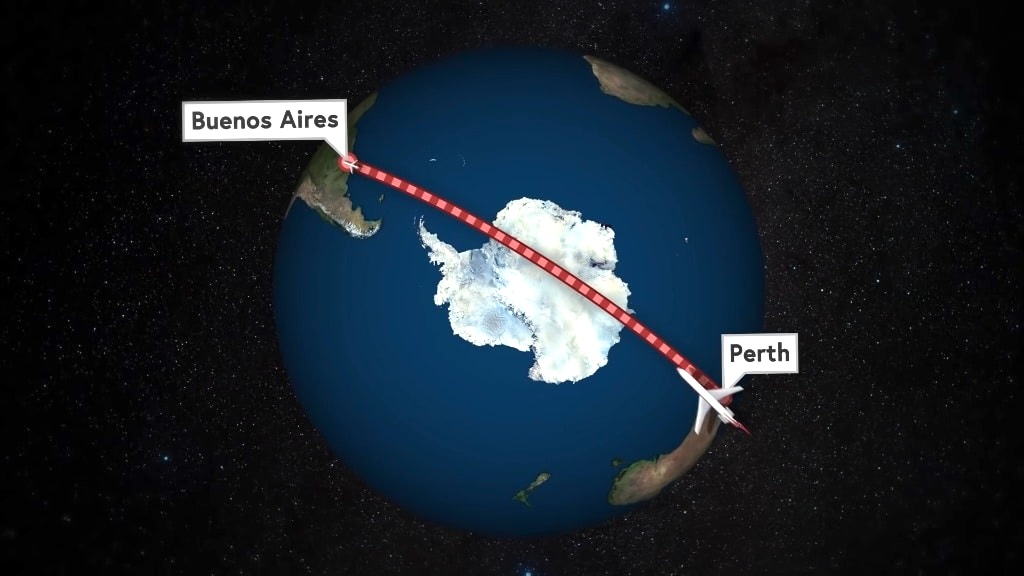Why Commercial Airlines Won’t Fly Over The South Pole
Sam Denby of Half as Interesting explains in his distinctively frantic manner why commercial airlines often fly over the North Pole but never over the South Pole. The primary issue is how far an airplane can be at any one time from the closest airport. While modern planes have improved the distance issue, it has not resolved flying over the South Pole.
Basically, every commercial twin-engine plane is given a certain rating for how far it can be, at any given time, from a suitable diversion airport. This is to make sure that there’s always a runway that a flight can divert to in the event of an emergency… This rating is called ETOPS, and it’s measured in flight-time. …before 1985, all twin-engine planes were ETOPS-60, meaning they could only ever fly within a 60 minute radius from an airport. As planes got better, ETOPS numbers went up.
In other words, the closest airport to the South Pole is located quite a distance away, far past the ETOPS (Extended-range Twin-engine Operational Performance Standards) rating of most commercial airlines.
To put things into perspective, the closest potential diversion airport to the South Pole is the Ushuaia International Airport in Argentina, but it’s still about 2,500 miles, or 4,000 kilometers away.
This is not to say that some flights don’t brush the Antarctic, but they won’t fly directly over the Pole itself.
Now, some flights do come close to the Antarctic coast—like the routes between Sydney and Johannesburg or Santiago—and depending on wind conditions they will sometimes fly over a tiny bit of Antarctica, but absolutely zero go anywhere close to the pole itself.







